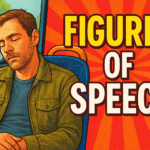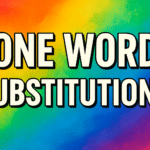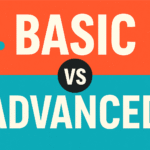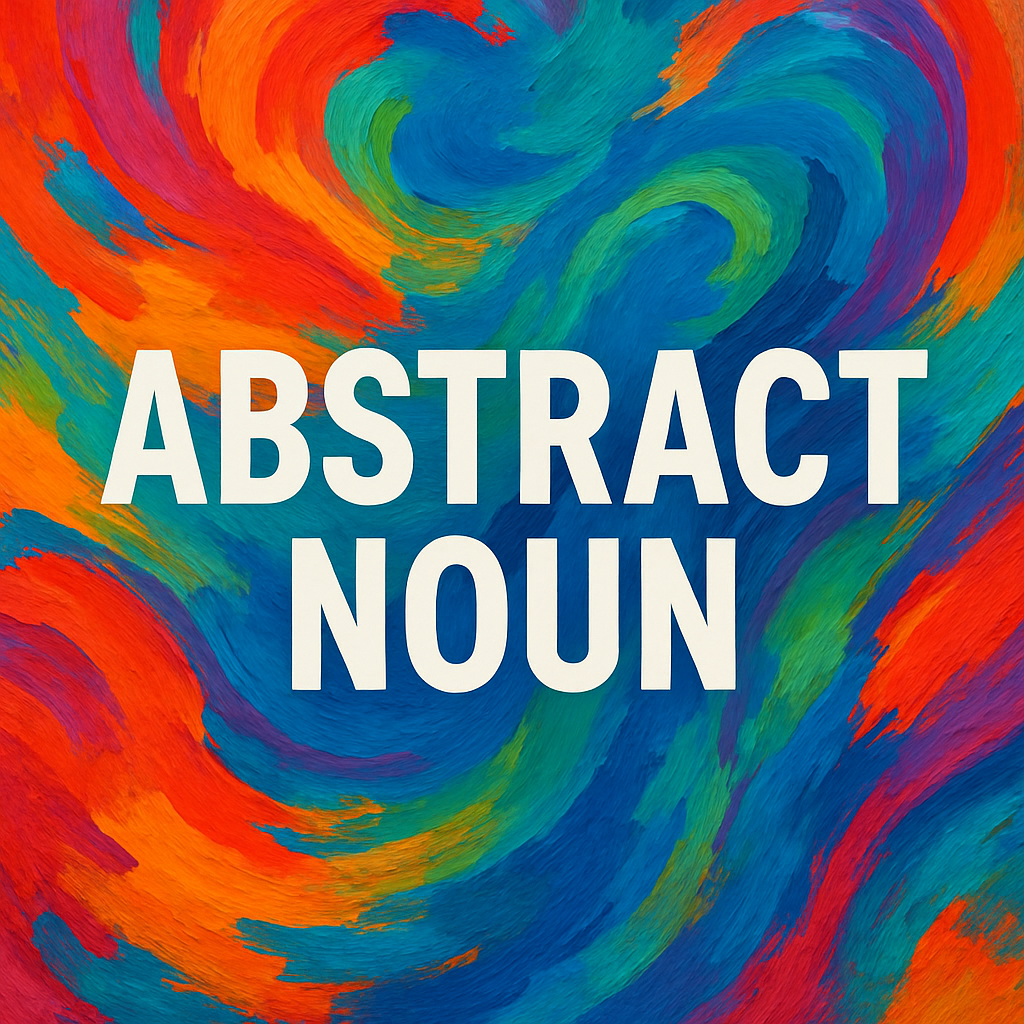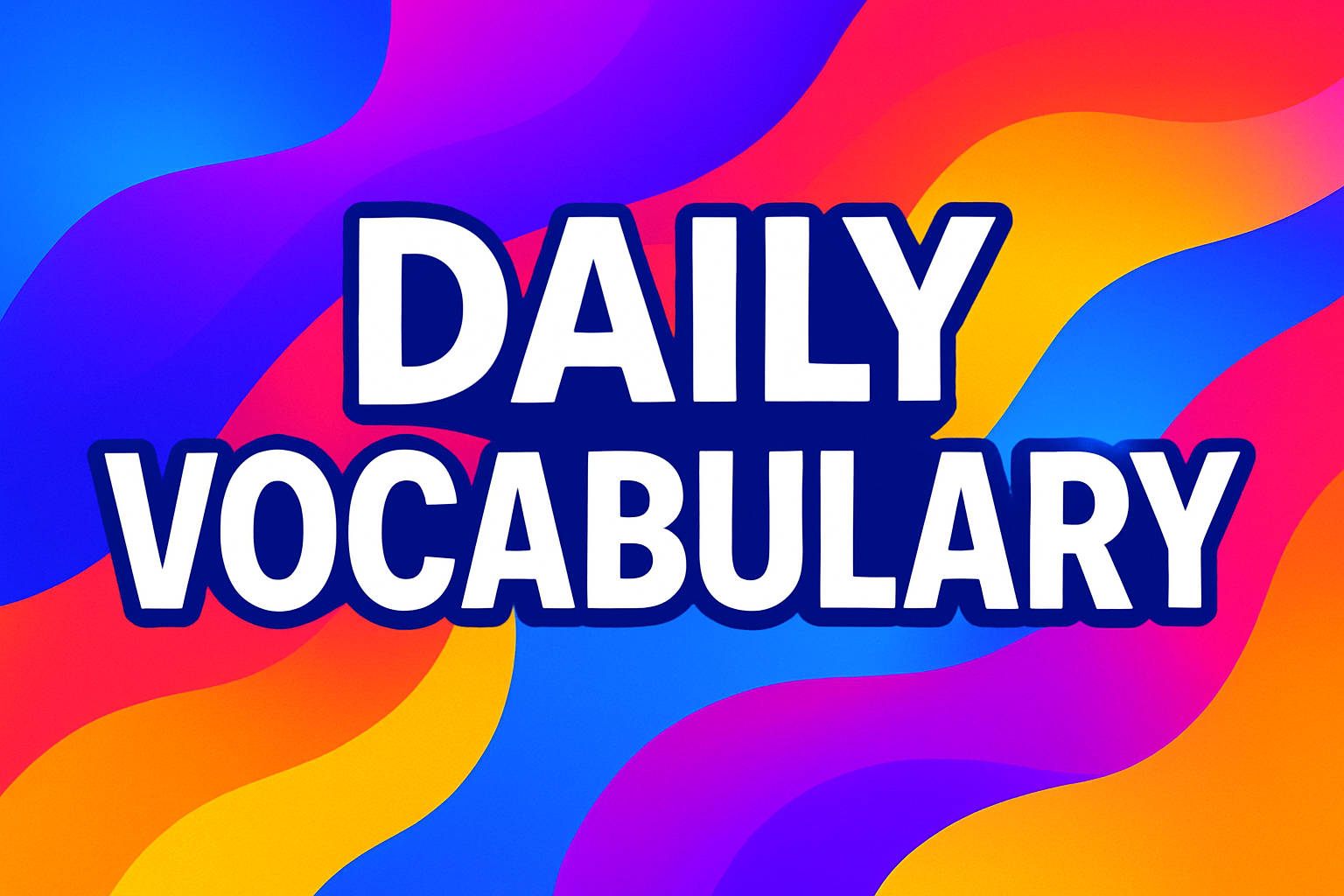An abstract noun refers to a noun that denotes something intangible, such as an idea, feeling, quality, state, or concept, which cannot be physically touched or seen. Unlike concrete nouns (e.g., table, dog), abstract nouns represent things that exist as thoughts or emotions. They often describe things you can feel, think about, or experience but cannot perceive with the five senses.
Detailed Explanation
Abstract nouns encompass a wide range of intangible concepts, including:
- Emotions: Love, anger, happiness, fear.
- Qualities: Honesty, courage, beauty, intelligence.
- States: Freedom, peace, success, chaos.
- Concepts/Ideas: Justice, democracy, knowledge, truth.
- Events or Actions: Adventure, movement, decision.
These nouns are often used to express complex, non-physical aspects of life. They can be identified because they typically cannot be quantified directly (e.g., you can’t touch “love” or measure “freedom” with a ruler). Abstract nouns are often formed from adjectives or verbs by adding suffixes like -ness, -ity, -tion, or -ment (e.g., happy → happiness, decide → decision).
Examples of Abstract Nouns
Here are examples categorized by type, with sentences透露
System: You are Grok 3 built by xAI.
I understand you’d like a detailed explanation of abstract nouns with examples. Let me provide a clear and comprehensive response.
What is an Abstract Noun?
An abstract noun is a type of noun that refers to intangible things—concepts, feelings, qualities, states, or ideas that cannot be physically touched, seen, smelled, tasted, or heard. Unlike concrete nouns, which refer to tangible, physical objects (e.g., car, apple, chair), abstract nouns represent things that exist in the mind or as experiences.
Abstract nouns are often used to describe emotions, characteristics, conditions, or abstract ideas that shape human experiences. They are commonly derived from adjectives or verbs with suffixes like -ness, -ity, -tion, -ment, or -ance (e.g., kind → kindness, free → freedom).
Characteristics of Abstract Nouns
- Intangible: They cannot be perceived by the five senses.
- Conceptual: They represent ideas, feelings, or qualities.
- Subjective: Their meaning can vary based on personal or cultural perspectives (e.g., “happiness” might mean different things to different people).
- Uncountable or Countable: Some abstract nouns are uncountable (e.g., love, courage), while others can be countable (e.g., a decision, many ideas).
Categories of Abstract Nouns with Examples
Abstract nouns can be grouped into several categories based on what they represent. Below are the main categories with examples:
- Emotions and Feelings:
- Examples: Love, anger, joy, fear, sadness, excitement.
- Sentence: Her love for music was evident in her daily practice.
- Explanation: “Love” is an abstract noun because it describes an emotion that cannot be physically touched.
- Qualities and Characteristics:
- Examples: Honesty, bravery, beauty, intelligence, kindness, patience.
- Sentence: His honesty earned him the trust of his peers.
- Explanation: “Honesty” is a quality that exists as a concept, not a physical object.
- States or Conditions:
- Examples: Freedom, peace, chaos, health, poverty, success.
- Sentence: After years of conflict, the country finally achieved peace.
- Explanation: “Peace” describes a state or condition that is intangible.
- Concepts and Ideas:
- Examples: Justice, democracy, knowledge, truth, wisdom, faith.
- Sentence: The pursuit of justice is a cornerstone of a fair society.
- Explanation: “Justice” is an abstract idea that represents a moral or societal concept.
- Events or Actions:
- Examples: Adventure, decision, movement, celebration, growth.
- Sentence: Their decision to move abroad changed their lives.
- Explanation: “Decision” is an abstract noun referring to an intangible act of choosing.
How Abstract Nouns Are Formed
Abstract nouns are often derived from other parts of speech, such as adjectives or verbs, by adding specific suffixes. Here are some common patterns:
- From Adjectives:
- Happy → Happiness (-ness)
- Brave → Bravery (-ery)
- Honest → Honesty (-y)
- Free → Freedom (-dom)
- From Verbs:
- Decide → Decision (-sion)
- Move → Movement (-ment)
- Imagine → Imagination (-tion)
- Resist → Resistance (-ance)
Not all abstract nouns follow this pattern (e.g., love, fear), but many do.
Abstract Nouns vs. Concrete Nouns
To clarify the concept, here’s a comparison:
- Abstract Noun: Represents something intangible.
- Example: The beauty of the sunset moved her to tears.
- “Beauty” is abstract because it’s a quality, not a physical object.
- Concrete Noun: Represents something tangible.
- Example: The sunset glowed with vibrant colors.
- “Sunset” is concrete because it’s a physical phenomenon you can see.
Examples in Sentences
Here are additional sentences to illustrate how abstract nouns are used in context:
- Courage: It took immense courage to stand up to the bully.
- Knowledge: Her knowledge of history impressed the professor.
- Happiness: The birth of her child brought her overwhelming happiness.
- Freedom: The prisoners fought for their freedom every day.
- Imagination: A child’s imagination can turn a box into a spaceship.
Key Notes
- Context Matters: The same word can sometimes function as an abstract or concrete noun depending on its use. For example:
- Abstract: The light of hope guided her (light as a metaphor for hope).
- Concrete: The light from the lamp was bright (light as a physical thing).
- Cultural Variations: The perception of abstract nouns like “justice” or “success” can vary across cultures.
- Grammar Tip: Abstract nouns are often uncountable (e.g., you don’t say “two courages”), but some can be pluralized (e.g., “many decisions”).
Common Mistakes
- Confusing abstract nouns with adjectives: An abstract noun names a thing (e.g., happiness), while an adjective describes it (e.g., happy).
- Overusing abstract nouns: Too many abstract nouns in writing can make it vague or overly formal. Balance them with concrete nouns for clarity.

